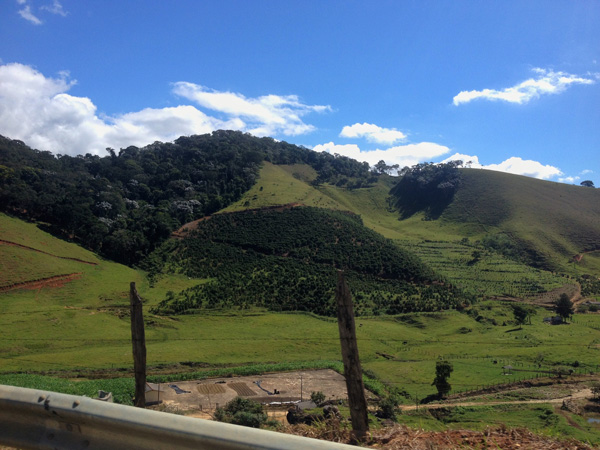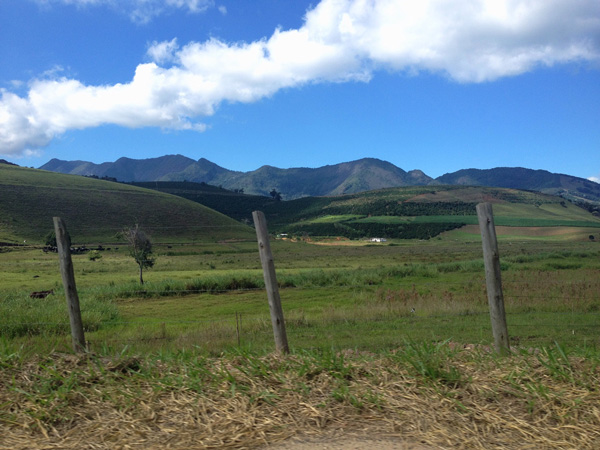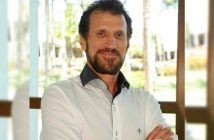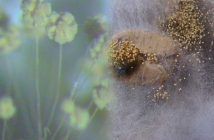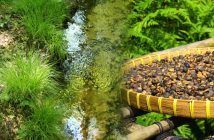Serra do Caparaó – which, to Guarani and Tupiniquim ethnic groups mean magic mountain – is located between Minas Gerais and Espírito Santo states, both large special coffee producers in Brazil.
And the Indians were right: Caparaó not only is a magic mountain, but a piece of paradise. It is the seat of the largest massif in the remaining Atlantic Forest, whose biodiversity is the largest worldwide and many animal and plant species are only found here. In addition to the special coffee, ecotourism is also an important source of income to the community with paths to the highest peaks and crystalline waterfalls. That without mentioning the residents’ sympathy, who treat visitors as family, a typical Brazilian quality.
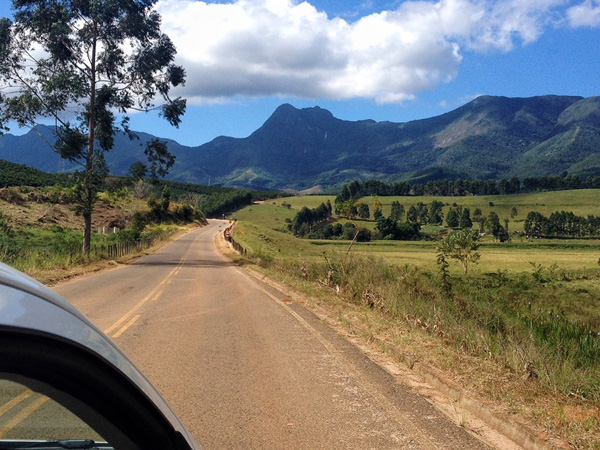
Serra do Caparaó shelters the third highest peak in Brazil, Pico da Bandeira, 2,892 meters high, and is a region preserved by law since the creation of Caparaó National Park, in the early 60s. It is one of the most important places for the practice of mountain climbing in Brazil, and the park is also the seat of five of the ten highest peaks in the whole national territory.
The local still presents difficult access: from Belo Horizonte, Minas Gerais’ capital, is 351 km distant, but the roads’ quality makes the travel last seven hours.
However, the travel is worth each minute. When one gets closer to the mountain, the landscape starts to change; the Atlantic Forest’s exuberance and the peaks covered with clouds are breathtaking. And the coffee plantations start to show.
The person who received us in Forquilha do Rio small farm, in Espera Feliz district, was its owner, Afonso Lacerda, winner of the contest ‘Coffee of the year 2016’, promoted by ABIC, Brazilian Association for the Coffee Industry.
The start of exploration
In 1842, a rich political refugee, Antônio Dutra de Carvalho, avoiding imprisonment, took his slaves, family members, cattle and belongings to the place, creating a small settlement. When they got there, they found indigenous groups who, in the beginning, worked opening roads. But the white man/Indian relationship was never very friendly.
The pioneer soon noticed that the land was excellent and started to rent small lots of land to other farmers. Among other cultures, coffee started to be planted and the results were exceptional. With their political influence, farmers could make the Leopoldina Railway Company Limited, first railway built in Minas Gerais, reach the nearby municipality of Manhuaçu, and so the coffee could go to Santos port. That’s when Serra do Caparaó coffees’ successful story started.
Over time, the first farmers died and their families started to divide the land into yet smaller lots as heritage to their children. The result is that most properties in Caparaó have around three to four hectares. Cousins married cousins and the coffee culture has been improved since then.
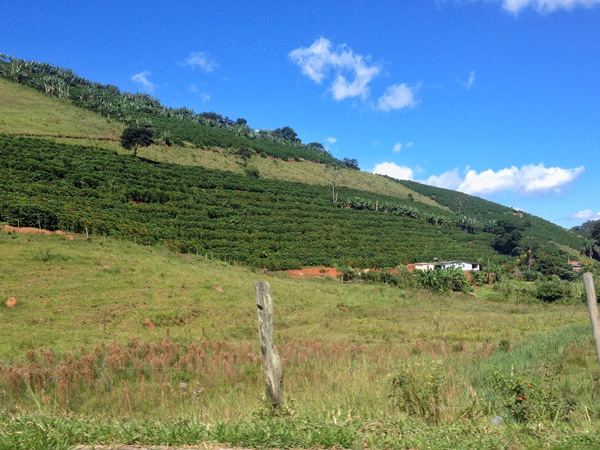
Today, Serra do Caparaó small farmers’ community counts on around 500 producers of special coffee.
From a 1,130 meters height, Afonso explains that the Lacerda family counts on two farms, side by side: Pedra Menina, with 27 hectares (not all is coffee) that belongs to his father, Onofre Alves de Lacerca, and Forquilha do Rio, with 20 hectares, a partnership with his brothers, Alexandre, Ademir and …. In total, both properties have 60 thousand coffee plants, 60% of them special and the remaining are commodities. “We are working to have 80% of special coffees soon”, he tells.
The most cultivated species is the hybrid ‘catuaí vermelho’, though for 20 years the Caparaó species, a genetic mutation, has been tested and its quality in the cup is highly appreciated. “As soon as tests are concluded, we will have the first patent of the variety and will be in the Brazilian special coffee history”, says the producer, proudly.
In such a steep land, harvest is 100% manual. In the property, people work throughout the year, including during harvest, from May to December, a little later than in other Brazilian regions, due to the climate and altitude.
Another peculiarity of the region, that contributes a lot to the quality of the special coffee produced, is the quality of water of the rivers that cross the properties. All houses count on sewage treatment, which, unfortunately, is not very common in Brazil. That is, the rivers’ waters are clear and pure, appropriate to drink. And the water is excellent, used in agriculture as well.
Caparaó special coffees
Despite the family’s simplicity, they are highly skilled when the subject is coffee. The Lacerda family patriarch, observing that their coffee was increasingly appreciated, sought EMATER – Minas Gerais State Company for Technical Assistance and Rural Extension – a government agency, and asked for a study. Researchers created, in 2013, the project ‘Grãos do Caparaó’ (Caparaó grains).
At the same time, they started to participate in some contests. In the first contest they enrolled three lots. Two samples of ‘cereja descascado’ (pulped) and one of ‘natural’. They won three trophies. And went on increasingly recognized. Last year, they won the ABIC prize of best coffee in Brazil.
They were so much appreciated by those who know best the subject that Brazilian barista Camila Franco, from Lucca Café, from Curitiba, chose a micro-lot from ‘catuaí vermelha cereja descascada flor de março’, to compete in the World barista contest to take place in Budapest, Hungary, in June 13 to 15.
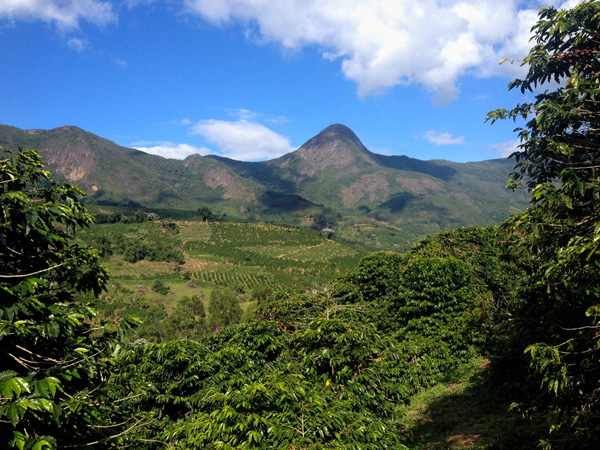
With the support of SEBRAE, a government agency, the producers in the region are seeking the Designation of Origin ( DO), which will probably include, at first, 15 municipalities located in the surroundings of Caparaó National Park in Espírito Santo, and six in Minas Gerais. They are: Dores do Rio Preto, Divino de São Lourenço, Guaçuí, Alegre, Muniz Freire, Ibitirama, Iúna, Irupi and Ibatiba
( Espírito Santo); Espera Feliz, Caparaó, Alto Caparaó, Manhumirim, Alto Jequitibá and Martins Soares ( Minas Gerais)
The coffees from Forquilha do Rio are sold to several countries, among them Japan, Australia, Argentina and United States. And it is present in the best Brazilian coffee houses and shops like ‘Tem Café’ in São Paulo, ‘Lucca Café’, in Curitiba, ‘Cafeína’ from Porto Alegre, and roaster Wolf, from São Paulo.
The future
Today Forquilha do Rio farm produces 700 bags of coffee per year. “But we are always working to increase our production. In 2019, we want to go beyond 1,000 bags”, says the owner.
Tourism
The producer and his wife opened a small coffee house in their farm of which tourists are very fond. Altilina Lacerda, Afonso’s wife, is in charge of roasting and also the preparation of home-made cakes and breads. After the end of harvest, by the middle of 2018, he intends to start building 10 cottages to receive Serra do Caparaó visitors. Meanwhile, one can find accommodation in the property, a very charming little house in the neighboring property, owned by one of his brothers. “We were raised in this house when we were children. Today, each brother has his own comfortable house”, he concludes. One of the characteristics of these constructions is that kitchens are outside. So, be prepared, because mornings and nights are usually very cold.
Drinking coffee at Forquilha do Rio is already a privilege. Imagine what it is to wake up in the middle of a paradise, with a magnificent view and the delicious smell of coffee!
Fact sheet:
Forquilha do Rio Farm
Owner: Afonso Lacerda – afonsolacerda2014@gmail.com
Phones: 55 28 999438432/ 55 28 999629008
Espera Feliz Municipality – Espírito Santo access to Caparaó National Park
Type of harvest: manual
Cleaning: manual and machine screening
Harvest period: May to December
Processing: dry and wet processing
Drying: 3 types of yard (suspended, stove and cement)
Certification: Certifica Minas Café – EMATER
Prizes
– Four time Regional Champion – Minas Gerais Coffee Quality Contest (2012-2013-2015-2016)
– Three time State Champion – Minas Gerais Coffee Quality Contest (2012-2015-2016)
– Three time champion National ABIC Coffee Quality Contest (2012-2015-2016)
– Champion – Coffee Of The Year Brazil at the International Coffee Week (2016)
Do you want to get to know it? As tourist? Write down the tips
How to get there
– Starting point
- São Paulo/SP: go towards north in BR-116 (at some point it will become BR-393 but becomes BR-116 again) until BR-482 in Fervedouro, follow BR-482 until Caparaó National Park.
- Belo Horizonte/MG: follow BR-381 and BR-262 until Reduto, take Rodovia Agenor Carlos Werner, MG-111 and BR-482 until Caparaó National Park.
- Vitória/ES: follow Rodovia do Sol, BR-101 and BR-482 until Espera Feliz, continue to ES-495 until your destination at Caparaó National Park.
Where to stay
– Pousada Villa Januária /phone: +55 (28) 99912 – 1112 /email: villa.januaria@gmail.com /site: www.villajanuaria.com.br
– Cama e Café Fazendinha Manoel e Joana /phone: +55 (28) 99977 – 6460 /email: joelmapabreu@hotmail.com
– Cama e Café Doce Lar /phone: +55 (28) 99982 – 2862 /email: jumariaprotazio@outlook.com
– Macieira Parque Hotel /phone: +55 (28) 99988 – 1430 /email: faustofreitasj@yahoo.com.br /site: www.macieiraparquehotel.com.br

